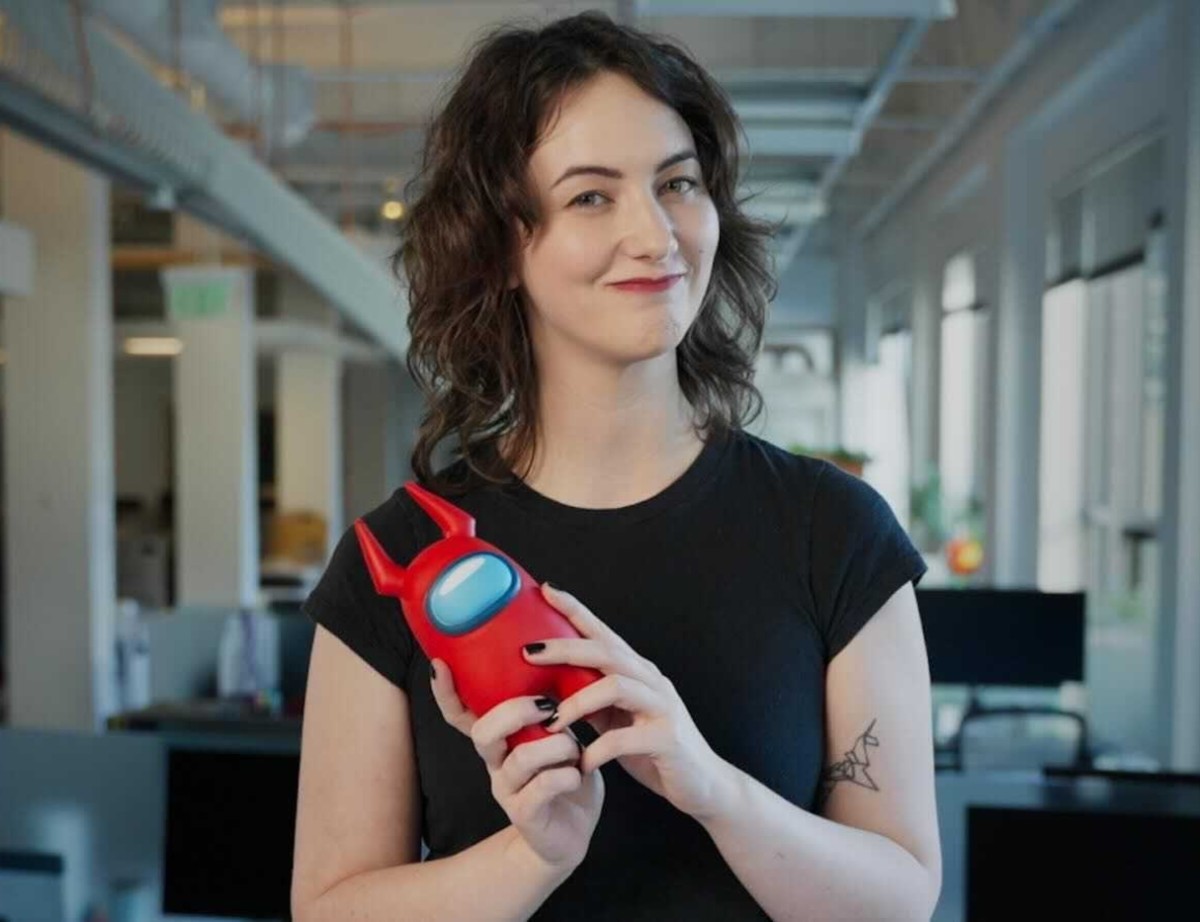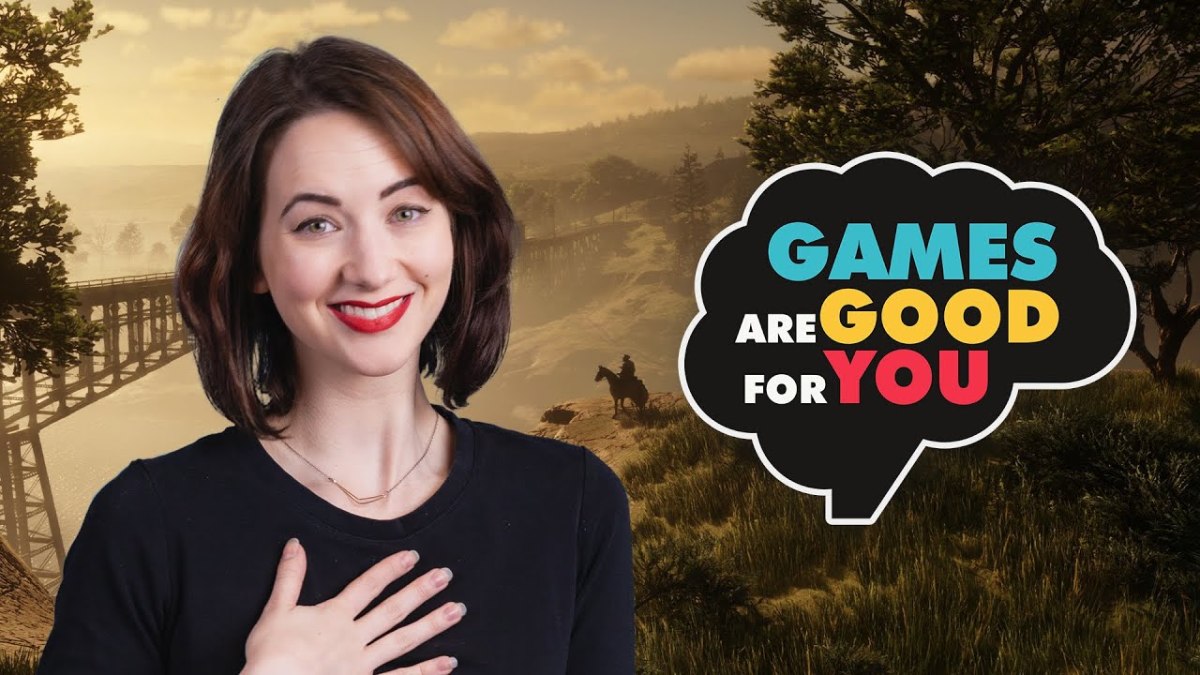Meet Lucy James, one of video games’ cultural champions

Lucy James is a Geordie, but you wouldn’t know it unless you got her drunk. When she talks now, sometimes an American accent creeps into the vowels, her native tongue twisted over years of presenting videos with and for Americans, to an audience of over 100 million video gamers worldwide. But before that, there were Slipknot hoodies.
James was a typical British teen and spent most of her younger years hanging around the streets of Newcastle, UK, with her mosher pals. She didn’t grow up with a games console and most of her early memories of playing video games are from playing Sega Genesis at a friend’s house, where she developed a deep dislike for a certain blue hedgehog.
When her dad bought a PC, the trajectory of her life changed.

“My dad is very… He loves a gadget,” James says. “He loves the process of researching something, comparing everything, and then eventually pulling the trigger. Every time you go around, he's like, ‘Here's my new thing’.”
James’ parents were separated as early as she can remember, so she would split her time between them. Video games became a way to connect with her father, playing titles like Tomb Raider, X Wing vs Tie Fighter, Quake, and Doom – she wasn’t allowed to watch violent movies, but video games were a loophole because the blood is made of pixels or something.
Then one day she went to a friend’s house, they loaded up The Sims, the floodgates burst open, and the next thing she’s convincing her mum to buy a PS2.
Prince of Persia: The Sands of Time and, erm, Kingdom Hearts introduced James to more complex video game narratives, her appreciation of which deepened when she bought an Xbox 360 and loaded up Red Dead Redemption. Then Mass Effect came along. Then Dragon Age.
The Slipknot hoodies were out and the N7 hoodies were in.
Rockstar Games’ NDAs more strict than Marvel’s, Red Dead Redemption 2 voice actor reveals
“I think there's a point in my life, pre-2010, where I was just playing games purely to muck around in them,” James explains. “I don't want to put all the blame on Red Dead Redemption, but that felt like a turning point, and that's when I started to seek out gaming narratives and more interesting stories.”
At this point she was deep into her student loan – studying psychology – and working her way through games like BioShock, Half-Life, and Portal, while reading all about upcoming titles on GameSpot and IGN. She was still figuring out what she wanted to do for work, whether in archelogy, criminology, as a doctor, or as a lawyer – all good options that she considered, “But I became a degenerate gamer instead,” she laughs.
In 2012 – in a world where YouTubers and influencers didn’t really exist – James landed a month-long internship at GameSpot, where she got a crash course in games journalism. She learned how to create videos, write news, interview developers, and look at games through a critical lens.
“My second day on the job was filming Start/Select with them,” James remembers. “I got to go to a Mass Effect 3 preview, which was crazy for me because I was such a big fan of the series. I played it like two months early and I was just like, ‘Oh my god, this is a job.’ I learned so much about video production. They taught me how to edit videos. They taught me how to capture. I interviewed developers from Creative Assembly.”

During that time, she met some of the people behind Ginx TV, and before long she was working with them – on actual television presenting one of the biggest video game shows to ever air.
Being in front of a camera is a skill. Not everyone can do it without feeling like a potato. While James didn’t immediately feel natural as a presenter, she says she didn’t feel intimidated by it either, which is half the battle. Looking natural after someone tells you to look natural, making you aware that you’re a collection of thoughts piloting a meat mech, isn’t as easy as it sounds.
“We'd record ‘Hey, it's Thursday, January 12 – you're watching Ginx news’,” James explains. “We would record, like, a month of those. And Simon (Longden) would just tell me one thing to improve every time. He would go, ‘Okay, you're tensing your neck a little bit.’ And then he'd show it to me on the preview so I could see what I was doing wrong. And then we do a few and it would be like, ‘Okay, we have figured that out. Next up, you’re blinking a lot.’ It was just this incremental improvement. It wasn't discouraging at all. It was a way of just slowly improving my skills. We did so much of that, that it became second nature.”
Her ability to perform didn’t come from nowhere. It goes back to her childhood, when her drama teacher was always asking if she’d audition for the latest play. She’d audition for the court jester and end up getting a leading role, ruining my joke about her first job in front of the camera being as a clown.
James’ career has only skyrocketed since, and she now works with Fandom on GameSpot and Giant Bomb, while somehow also finding the time to collaborate on the brilliant Friends Per Second podcast. She’s been an official presenter at the launch of the PS4. She’s presented awards at the BAFTAs alongside longtime collaborator and all-round lovely dude Tamoor Hussain. She’s written comics, interviewed the biggest game personalities, helped to raise hundreds of thousands of dollars for various charities, and spoken openly about mental health struggles to her audience. She’s the doctor, lawyer, archeologist, and criminologist of video games, all wrapped up in one package (and a degenerate gamer).
Despite that, I think there’s an easier way to describe James’ contribution to the games industry: she’s a cultural champion. She shines a light on a secretive industry and demystifies game development while humanizing the people who make them. Things wouldn’t be the same without her voice – with or without that American twang.
Check out our podcast episode of Game and Fortune, featuring Lucy James.
